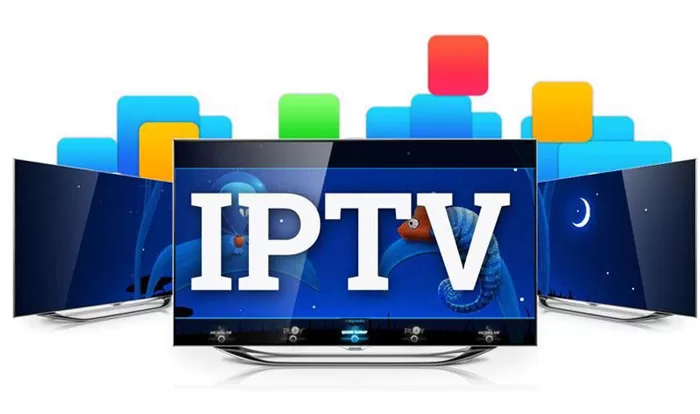IPTV Explained: Why It's Transforming the Way We Enjoy Television
The appearance of Internet Protocol Television (IPTV) indicates a pivotal shift in how audiences engage with web content. By leveraging net connection, IPTV goes beyond standard broadcasting restrictions, using viewers a personalized and vibrant media experience. This innovation not just gives accessibility to a wealth of programming on-demand but likewise presents interactive attributes that deal with contemporary viewing preferences. As we check out the details of IPTV, it comes to be evident that this evolution is not merely a fad; it poses considerable effects for the future of television intake and the landscape of digital entertainment.
What Is IPTV?
IPTV, or Internet Procedure Television, is a method of supplying tv web content online as opposed to with traditional satellite or cable television formats. This ingenious technique makes use of web protocol networks to transmit video clip information, permitting customers to access a broad variety of programming straight via their web link. Unlike traditional broadcasting, which relies upon radio waves or cord framework, IPTV allows the streaming of content in a much more flexible and user-centric manner.
Among the essential advantages of IPTV is its capability to provide on-demand access to a large library of programs, flicks, and live programs. Clients can appreciate tailored watching experiences, including the choice to stop briefly, rewind, or document material. Furthermore, IPTV services often incorporate interactive features, such as video as needed, catch-up television, and the capacity to accessibility several devices concurrently.

How IPTV Works

The process starts with web content aggregation, where different tv networks and programs are compiled onto a central server. From this server, the material is encoded into electronic layouts suitable for streaming. When an individual chooses a program, the IPTV solution obtains the proper data packages from the web server and transmits them to the user's device.
IPTV usually integrates interactive features such as rewind, accessibility, and pause to a digital collection, boosting customer engagement. In general, IPTV represents a sophisticated combination of technology that changes traditional tv viewing into an extra tailored and dynamic experience.
Advantages of IPTV
As visitors significantly look for versatility and modification in their entertainment selections, IPTV supplies an array of benefits that accommodate these needs. Among the most significant benefits is the ability to accessibility material on various devices, consisting of smart devices, tablets, smart Televisions, and computer systems - Iptv. This multi-device compatibility permits customers to enjoy their favorite programs and films anytime, anywhere, enhancing their watching experience
Furthermore, IPTV provides a comprehensive collection useful content of on-demand material, enabling clients to select what to enjoy, when to watch it, and just how to view it. This contrasts with standard broadcasting methods, where visitors are typically constrained by dealt with timetables. In addition, IPTV services regularly supply customization attributes, such as tailored referrals based on watching practices, permitting individuals to uncover new content fit to their choices.
Additionally, IPTV typically includes innovative features like cloud DVR abilities, making it possible for individuals to videotape and keep programs for later watching. Enhanced interactivity, such as the capability to stop, rewind, or fast-forward content, additional improves the viewing experience. Iptv. Collectively, these advantages placement IPTV as a compelling alternative to traditional tv, meeting the developing assumptions these days's target markets
Comparison With Conventional TV
Typical television and IPTV present unique checking out experiences, each accommodating different audience preferences. Conventional TV relies on cord, terrestrial, or satellite signals, supplying a repaired routine for broadcasting. Customers are typically bound to specific time slots to watch their favorite shows, which can be inconvenient in today's fast-paced environment.
In contrast, IPTV delivers web content by means of the net, permitting customers to stream shows and motion pictures on-demand. This adaptability allows customers to enjoy material at their comfort, removing the restraints of a fixed routine. Furthermore, IPTV services frequently provide accessibility to a more comprehensive array of channels and content, look at here now consisting of global programs and specific niche genres that typical cord bundles may not provide.
In addition, the interactivity of IPTV improves user involvement, enabling for features such as document, pause, and rewind capabilities that traditional television lacks. Customers can additionally access supplemental material, including in-depth program guides and viewer rankings, enhancing the overall watching experience.
Ultimately, while standard television continues to my review here be a staple for numerous visitors, IPTV's versatility and wide range of material make it a significantly prominent choice, appealing to those looking for more control over their checking out habits.
Future of IPTV
The future of IPTV appears encouraging, driven by developments in modern technology and shifting customer choices. As broadband infrastructure proceeds to improve worldwide, IPTV solutions are poised to provide higher-quality video clip web content with minimal buffering and improved customer experiences. This progression is matched by the spreading of clever devices, allowing visitors to access IPTV material on mobile phones, tablet computers, and clever TVs, therefore improving ease and mobility.
Moreover, the assimilation of artificial intelligence and artificial intelligence right into IPTV systems is anticipated to revolutionize content shipment. Individualized referrals based upon viewing practices will certainly improve individual involvement, making it less complicated for clients to discover relevant content. Additionally, the incorporation of augmented reality (AR) and digital fact (VIRTUAL REALITY) modern technologies holds the possible to develop immersive watching experiences that typical tv can not match.
The surge of subscription-based designs and ad-supported streaming services suggests a shift in exactly how consumers want to pay for content, further fueling IPTV's development. As even more customers look for adaptability and modification in their watching behaviors, IPTV is most likely to end up being a dominant force in the entertainment landscape, reshaping just how material is produced, distributed, and eaten in the coming years.
Final Thought
In conclusion, IPTV stands for a transformative advancement in tv consumption, using viewers unmatched flexibility and control over their checking out experiences. As innovation continues to progress, the potential for IPTV to more influence media intake patterns and reshape the entertainment landscape stays substantial.
The development of Web Method Television (IPTV) indicates a pivotal shift in exactly how target markets engage with material.IPTV, or Web Method Television, is a technique of providing tv web content over the internet rather than via traditional satellite or cord layouts.Making use of a network of internet protocols, IPTV provides television material via a collection of distinct processes. Additionally, IPTV services often use customization attributes, such as customized referrals based on viewing habits, allowing individuals to find new material fit to their preferences.
Furthermore, IPTV services usually give accessibility to a more comprehensive array of channels and web content, consisting of global programming and niche genres that traditional cable packages might not supply.